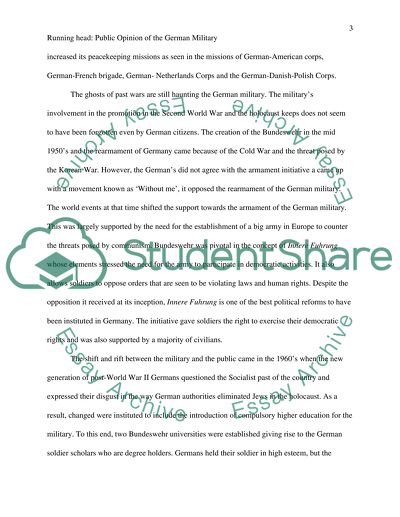Cite this document
(“Prompt: The public opinion of the German military in the present day Essay”, n.d.)
Prompt: The public opinion of the German military in the present day Essay. Retrieved from https://studentshare.org/history/1497426-prompt-the-public-opinion-of-the-german-military
Prompt: The public opinion of the German military in the present day Essay. Retrieved from https://studentshare.org/history/1497426-prompt-the-public-opinion-of-the-german-military
(Prompt: The Public Opinion of the German Military in the Present Day Essay)
Prompt: The Public Opinion of the German Military in the Present Day Essay. https://studentshare.org/history/1497426-prompt-the-public-opinion-of-the-german-military.
Prompt: The Public Opinion of the German Military in the Present Day Essay. https://studentshare.org/history/1497426-prompt-the-public-opinion-of-the-german-military.
“Prompt: The Public Opinion of the German Military in the Present Day Essay”, n.d. https://studentshare.org/history/1497426-prompt-the-public-opinion-of-the-german-military.


